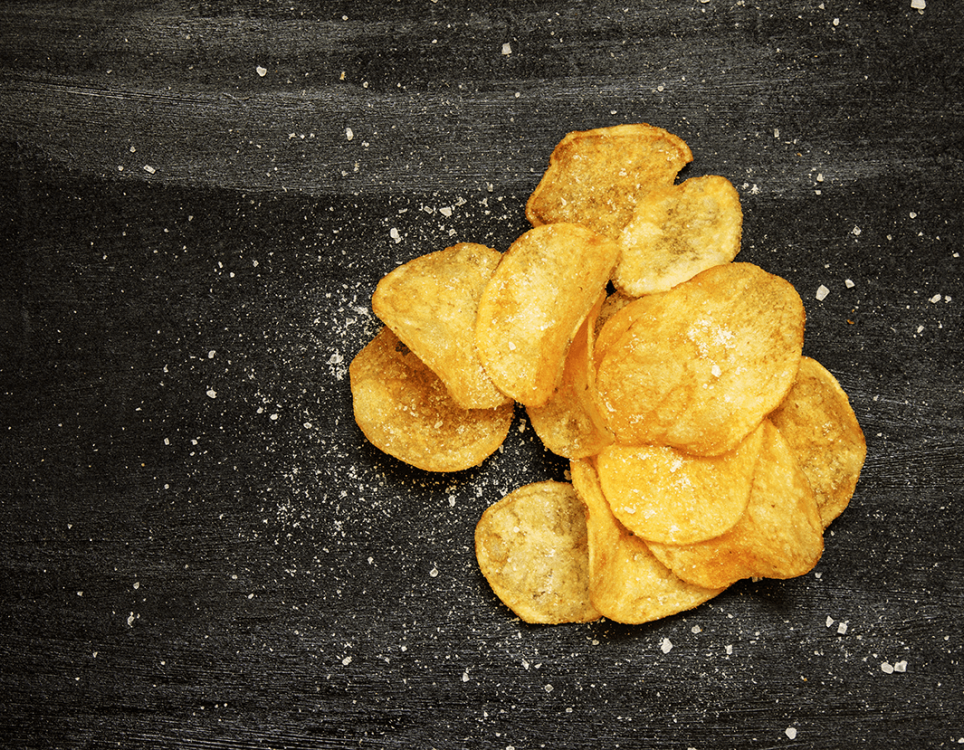Snack Foods Processing
Historically, snack food manufacturers only had to worry about oil and grease in their waste streams. After all, city sewage treatment plants were designed to handle the biological waste that their processes create. Often, it was cheaper for snack food manufacturers to pay surcharges for BOD/COD that was in excess of the permitted limit. In fact, this was often a steady revenue stream for the municipalities to help offset operating costs. Recently, publicly owned treatment works (POTW) facilities have been lowering their BOD/COD limits and increasing their surcharges and fines. In some cases, upstream manufacturers are no longer allowed to just pay surcharges and must meet ever tightening limits. We are now entering an era where it makes economic sense for manufacturers to invest in a more robust wastewater treatment system. With growing environmental concerns, snack food manufacturers are also in danger of negative publicity stemming from violating their POTWs BOD/COD limits, even if it has been accepted practice to do so in the past.

The solution for wastewater challenges affecting snack foods manufacturers
With 45 years of experience, MacDermid Envio is more than just an equipment and chemical provider – we provide integrated, automated wastewater treatment solutions that address the challenges facing snack food manufacturers.
All snack food manufacturers may have similar issues, but the volume of solids and biological waste, where the waste comes from and POTW BOD/COD limits will determine the most optimal and economical solution for each facility. Therefore, we start with an audit which includes evaluating your current and future manufacturing process, observing your flow cycle, testing water samples and working with your local municipal plant directly to understand local regulatory and compliance limits. After that, we’re able to design a modular solution for the most optimal treatment that will adapt to changes in your facility and keep your capital and operating costs low.
Most importantly, with the varying nature of snack food manufacturers, we include our Performance Guarantee Program to keep your operating costs low and continue to take the worry out of wastewater.
Wastewater contributing factors in snack foods industry
While every facility has its unique challenges based on product mix, operating procedures and local regulations, there are some commonalities to snack food manufacturing wastewater.
Snack foods include products like potato chips, tortilla chips, nuts and popcorn in addition to salad dressing, ketchup and mayonnaise. Many of these can be produced at the same facility, causing wastewater streams to vary with production runs. Each stream can require different treatment and it is important to consider all streams upfront in the design process. Additionally, wastewater produced during cleaning and sanitation will cause spikes in BOD/COD levels and must be considered in selecting the appropriate system design.
While most food and beverage manufacturers deal with suspended solids (TSS), fats, oil and grease (FOGs), and suspended and dissolved organics (COD and BOD), there is not a one size fits all technology to solve all problems. There are many options including Dissolved Air Flotation (DAF), moving bed biological reactor (MBBR), membrane bio reactor (MBR) and anaerobic digestion. The level and type of contaminants and flow rates are among the things you need to analyze to determine which technologies are most appropriate for your operation.
As manufacturers grow, water supply becomes an issue. Local utilities cannot always guarantee enough affordable water for a company’s needs. The good news is with the right technology, automated water reuse systems can give your snack foods facility the extra water it needs for success.
The one constant in wastewater treatment is change. As you change your production process for quality, performance or output, it affects the nature of the waste to be treated. Sometimes a chemical program adjustment provides a quick, economic fix or a small adjustment to the equipment can quickly address the problem. Other times an investment in additional. Selecting a water treatment partner, rather than a chemical vendor, is critical to ensuring you can sleep at night knowing that you can quickly and economically adjust to any future needs. It is MacDermid Envio’s mission to take the worry out of wastewater for our customers – this is why we designed the Performance Guarantee Program.